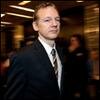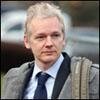Другие материалы рубрики «English»
-
 Opposition activists stage Chernobyl anniversary march in Minsk
Opposition activists stage Chernobyl anniversary march in Minsk
Opposition activists staged a traditional demonstration in Minsk on Sunday to mark the 29th anniversary of the Chernobyl nuclear accident... -
 Bruce Bucknell. Remember Crimea
Bruce Bucknell. Remember Crimea
A year ago, the Kremlin helped stage an illegal and illegitimate “referendum” in Crimea that culminated in Russia annexing Crimea from Ukraine...
- Zyanon Paznyak calls for preventing pro-Putin bikers from riding through Belarus on controversial road trip
- Biathlon Youth and Junior World Championships draw to close near Minsk
- US State Department’s envoy to visit Belarus this week
- Lukashenka meets with EEAS deputy secretary general
- EU foreign ministers, Brussels officials expected to visit Minsk soon
- Revelers in Minsk celebrate end of Butter Week
- Leaders of France, Germany, Russia, Ukraine arrive in Minsk for summit on Ukraine crisis
- United Kingdom’s Visa Application Center in Minsk moves into permanent office
- Minsk residents paying tribute to victims of Charlie Hebdo massacre in Paris
- Minsk adorned by New Year illumination
English
WikiLeaks: Lukashenko has based his foreign policy on five pillars
Below is the full version of the document provided to the online Naviny.by newspaper by representative of the WikiLeaks media organization Israel Shamir.
05MINSK1234
C O N F I D E N T I A L MINSK 001234 SIPDIS C O R R E C T E D C O P Y (TEXT) SIPDIS E.O. 12958: DECL: 12/01/2016 TAGS: PREL, PGOV, ECON, CH, VE, AJ, IR, BO SUBJECT: LUKASHENKO'S NEW FOREIGN POLICY: A METHOD TO THE MADNESS REF: A. MINSK 1184 B. MINSK 1220 C. MINSK 1212 D. MINSK 794 E. MINSK 787 F. MINSK 1188 G. MINSK 1102 Classified By: Ambassador Karen Stewart for reason 1.4 (d)
Summary
1. (C) Belarus' rocky relationship with Russia has forced the isolated country to pursue a different course in its foreign policy. The GOB has ratcheted up its efforts to strengthen ties with countries like Iran, Venezuela, Azerbaijan, and China over the past year. Belarus is attempting to diversify its energy supplier3: deeper ties with energy-rich countries could help Belarus minimize the effects of looming economic problems with Russia in the medium to long term. However, the regime's only salvation from economic troubles in the short term is Russia's continued political support and economic largesse. End Summary.
Five Possible Pillars of Belarus' New Foreign Policy
2. (C) On October 19, President Lukashenko announced that Belarus is developing a new foreign policy, but Lukashenko and his government have been vague on the details. We have spoken to a number of prominent political and economic analysts, informed journalists, diplomats, and GOB officials on the possible underlying themes of Belarus' new foreign policy. Most Belarusian analysts believe that Lukashenko is genuinely seeking to change the course of Belarus' foreigN policy. The regime appears to have based its more aggressive approach on the following five pillars: greater economic independence from Russia, diversification of energy suppliers, new export markets and limited foreign investment, no economic sanctions from the West, and possibly the active formation of an anti-West block of nations.
Greater Economic Independence From Russia
3. (C) In a rare moment of candor, MFA XXX in the Americas Department XXX told Pol/Econ Chief on November 9 that his government has grown weary of Russia's desire and ability to hinder Belarus' economic development. Referring to the possibility thAt Russia could raise gas prices for Belarus up to USD 140 per thousand cubic metersQ (tcm) if it refuses to sell at least half of the gas transit company Beltransgaz to Russia (ref A), XXX noted that "a country's partners are never truly permanent, only national interests."
4. (C) Economists stress that Belarus is desperate to find alternative energy supplies and export markets because the Belarusian economy remains too susceptible to the whims of the Kremlin. For example, Russia supplies Belarus with 98 percent of its natural gas. A gas price increase from USD 47 tcm to USD 140 per tcm would force Belarus to increase its spending on gas from USD 980 million per year to USD 2.94 billion per year, which represents over seven percent of Belarus' USD 40 billion economy. Irina Tochitskaya from the Institute for Privatization and Management said during the annual GeRman-sponskred Minsk Forum that an increase in gas prices of up to USD 200 would reduce GDP growth by 14 percent over the next half decade (ref B).
5. (C) Russia also supplies 96 percent of Belarus' oil at extremely reduced prices. Over 40 percent of Belarus' exports are refined oil and oil-based products. If Russia were to minimize or eliminate oil subsidies to Belarus, GOB officials and economists alike tell us that Belarus' economy would immediately collapse. Moreover, slightly less than 40 percent of Belarus' exports are destined for Russian markets, and Moscow has recently enacted import restrictions on Belarusian sugar and candy. Finally, economists XXXX and XXXXX told Ambassador on November 17 that within two to three years of Russia's entry to the World Trade Organization (WTO), Belarus will be cut off from cheap energy supplies and favorable terms of trade with its eastern neighbor (ref C).
6. (C) The apparent willingness of Russia to use its powerful economic levers to cause significant discomfort for Lukashenko has forced the president to intensify his efforts to weaken Belarus' dependence on Russian politics and the Russian economy. Analyst XXXXXX commented that Lukashenko's seemingly unmovable position on Beltransgaz negotiations -- instead of stepping back from Lukashenko's earlier asking price of USD 5 billion, he recently stated Beltransgaz is worth USD 10 to 12 billion -- demonstrates his resolve to engage in a game of chicken with Russia. In a possible attempt to minimize tensions with Russia, Belarusian Foreign Minister Sergey Martynov noted during the November 28 CIS Heads of State Summit in Minsk that Belarus is ready to establish a Beltransgaz-Gazprom joint enterprise by the end of the year (septel). However, analyst XXXXXXX stressed that Lukashenko personally has little to gain and everything to lose by giving up control of Beltransgaz and thus predicted the Belarusian leader would again default on assurances made to Putin. Moreover, XXX and analysts maintained that Russia is not intent on fomenting political instability in Belarus (ref D) -- if it was, Russia would focus on subsidized oil supplies to Belarus.
Diversification of Energy Suppliers
7. (C) Independent news reported on November 22 that Lukashenko again instructed his key aides to intensify efforts to secure energy deals with Iran, Venezuela, and Azerbaijan, as "next year promises to be catastrophically difficult for Belarus." XXX admitted that his government is ill prepared for a gas price increase to USD 140 per tcm or more and will continue to press Russia to maintain "brotherly" prices for Belarus. However, XXX stressed that Belarus is simultaneously attempting to wean the Belarusian economy off of Russian subsidized energy supplies, claiming that Belarus' sovereignty is at stake.
8. (C) Lukashenko warmly received Venezuelan President Chavez in Minsk on July 24, and both leaders touted their agreement to explore the possibility for Belarusian companies to extract Venezuelan crude oil and gas at discount prices and sell it on the world market, including to the United States, at world market prices (ref E). This scheme would provide Belarus the necessary additional revenues to purchase Russian oil or gas at higher prices. The Belarusian president received Azerbaijani President Aliyev on October 17, and Lukashenko expressed sincere hope that Belarus and Azerbaijan would reach a similar oil extraction deal or an agreement to build an oil pipeline between the two countries. Lukashenko called on Iranian President Ahmadinejad in Tehran on November 5, and high on the Belarusian leader's agenda was the possibility to extract and sell Iranian oil and gas on the world market. Most recently, Lukashenko met separately with his Ukrainian and Azerbaijani counterparts on the margins of the CIS Summit to discuss energy cooperation, apparently without the involvement of Russia.
9. (C) Several of Lukashenko's ministers and aides, including Prime Minister Sidorskiy, Security Council State Secretary Viktor Sheiman, National Bank President Peter SIPDIS Prokopovich, and State Control Committee Chair Zyanon Lomat have followed up with these counties to accelerate ngotiations, but thus far we have not seen any evidnce that Belarus' new partners have agreed to it terms. Aliyev, for example, implied during hisOctober 17 press conference in Minsk that Belaruian companies would have to participate in a reguar tender to win crude oil extraction rights in zerbaijan. Furthermore, economists note that the ransit costs of importing oil or gas from any of these countries could make this option prohibitiely expensive for Belarus.
New Export Markets an Limited Foreign Investment
10. (C) Lukashenko repeatedly stressed during his annual remarks to Belarusian ambassadors assembled in Minsk in Augst that the number one priority of his emissaries i the upcoming years is to promote Belarusian goos and services in any and all countries. SeniorGOBofficals ave inceasingly praised Belarus' promising trade relations with China, Venezuela,Iran, Vietnam, CUBA, Malaysia, South Africa, and Azerbaijan. Although the latest statistics thus far reflect that Belarus' new partners represent only a fraction of Belarus' trade with Russia or even the EU, expanding Belarusian exports to and attracting foreign investment from these countries appear to be more realistic goals for Belarus than diversifying its energy suppliers.
11. (C) Key Belarusian exports remain refined oil and oil-based products, fertilizer, metals, heavy machinery and equipment, and military technology. Our analytical and GOB contacts agree that except for oil-based products, Western markets are generally not interested in Belarus' lower quality goods. However, the GOB is successfully promoting its relatively few competitive companies in developing markets and in those countries that share the regime's political orientation and views. Economic analyst XXXXXXXX pointed out that Belarus and Iran recently signed contracts worth USD 350 million and agreed to look for ways to reach USD 1 billion in bilateral trade. Political analyst and journalist XXXX XXXX claimed that Venezuela's agreement to purchase USD 1 billion worth of military technology and equipment from Belarus is "very plausible" over a five to seven year period, as Belarus' military-industrial complex is advanced enough to suit the needs of developing countries.
12. (C) Belarus, to some extent, is also seeking to increase foreign investment from its new partners. During Lukashenko's December 2005 trip to Beijing, he announced that China is ready to provide up to USD 1 billion in loans for specific economic projects in Belarus. This year Belarus announced its efforts to attract Iranian and Chinese banks to open up branches in Belarus. XXXXXXXX added that Iran will likely accept the GOB's invitation to establish at least one bank in the country, as Iran is participating in Minsk's lucrative housing development.
No Economic Sanctions from the West
13. (C) Analysts ironically note that one of Lukashenko's most noteworthy achievements has been to keep the West, particularly the EU, from enacting costly economic sanctions against the regime. When it appeared that the EU was set to take the final step to suspend trade preferences (GSP) for Belarus in October, Lukashenko dispatched his trusted Deputy Head of Presidential Administration Natalia Petkevich to key EU capitals to demonstrate Belarus' "progress" in implementing the ILO's recommendations for improving labor conditions in Belarus (ref F). EU officials and diplomats tell us that the GOB delegation presented a poor case for postponing the decision on GSP suspension, but the GOB's appeals were well timed to support the position of those EU member states that opposed the measure for other political and economic reasons. The EU could take up the issue again in March 2007.
14. (C) According to most political and economic analysts, Belarus has successfully demonstrated that the EU is reluctant to allow political concerns to seriously constrain the growing trade relationship with its eastern neighbor. XXXXXXXX pointed out that the EU is Belarus' second largest trading partner after Russia, accounting for some 30 percent of Belarus' foreign trade, and Belarus has proven to be a stable transit country for trade between the EU and Russia. Political scientist XXXXXX XX observed that, notwithstanding the visa ban and asset freezes, the EU's Belarus policy is proving to be "all bark and no bite, and Lukashenko does not mind the barking." Analyst and freelance journalist XXX XXXXX added that if it were not for the new EU member states that border Belarus, the EU would have already lost its focus on Belarus.
15. (C) Commentators cited the EU's November 21 announcement of a "Shadow Action Plan" for normalizing political and trade relations with Belarus as the latest example of the EU's "incoherent policy." XXX XXXXX explained that the GOB has yet to comply with the four areas of political reform proposed earlier by the EU; any expectation that Lukashenko would take seriously the 12 areas listed in the latest proposal is absurd. When Pol/Econ Chief suggested to a group of independent political analysts that the real intent of the EU's proposal was to spur interest in democratic change among Belarusian people, the observers remained skeptical but noted Belarusians' opinion could change if the GOB proved incapable of shielding them fro- significantly higher g!s prices next year.
16. (C) Despite Belar5s' perceived successes 7ith the EU, most analysts agree that Lukashenko is fully aware that the United States is a much harder nut to crack. That said, the GOB seeks to at least keep the USG from taking measures to further constrain U.S.-Belarus trade -- e.g., securing the renewal of the Jackson-Vanik waiver and the removal of language referring to economic sanctions from the Belarus Democracy Reauthorization Act draft legislation -- without addressing human rights concerns. Key members in Lukashenko's administration have stepped up their attempts to engage in a "substantive dialogue" to normalize bilateral relations, but the GOB routinely qualifies that such a dialogue would be on the basis of "mutual respect" (ref G). MFA XXX XXX strongly suggested to Pol/Econ Chief that the USG will have to accept that Belarus holds fundamentally different views on political issues, but noted such differences should not spill over into bilateral trade.
Active Formation of an Anti-West Block?
17. (C) XXX XXXXX and several other experts with whom we have spoken are convinced that Belarus is actively working to reinvigorate the Non-Aligned Movement (NAM) and set up Lukashenko as the eventual successor to CUBAn leader Fidel Castro as the next "Papa" of the anti-West block. XXXXXXXX noted that Lukashenko is the ideal anti-globalist leader -- he is young (51 years old), energetic, bold, and he sits at the helm of a growing, stable (for now) economy in the heart of Europe. In this respect, some analysts assert that Lukashenko's highly publicized relations with countries such as Venezuela and Iran are as much political as they are economic in nature. XXXXXX XX agreed with this assessment but noted that Belarus' foreign policy is founded more on self-preservation than on ideological interests.
Comment
18. (C) We agree with our contacts' assessments that Belarus' extremely tense relationship with Russia has prompted Lukashenko to strengthen political and economic ties with those countries prepared to tolerate contact with him. However, if Lukashenko again refuses to sell at least half of Beltransgaz and Russia follows through on its promise to significantly raise gas prices for Belarus next year, Lukashenko's ardently statist approach to domestic and foreign policy will not likely save the country from tough economic times. Belarus remains extremely dependent on Russian energy supplies and markets, and deeper relationships with energy-rich countries would only partially mitigate the effects of economic pressure from Russia in the medium to long term. Thus, despite tough talk about the need for greater independence, Lukashenko's only escape from crisis in the immediate future appears to be the Kremlin's continued willingness to prop up the fragile economy.
Stewart




В настоящее время комментариев к этому материалу нет.
Вы можете стать первым, разместив свой комментарий в форме слева